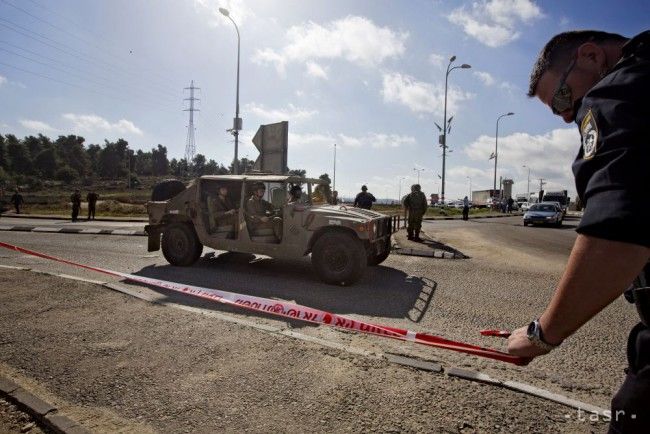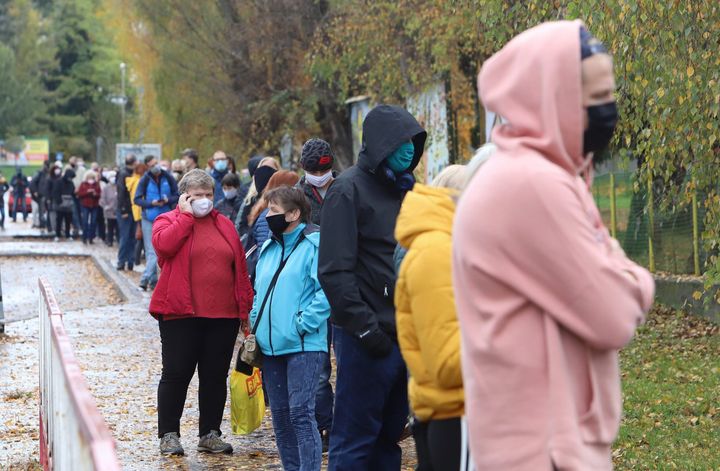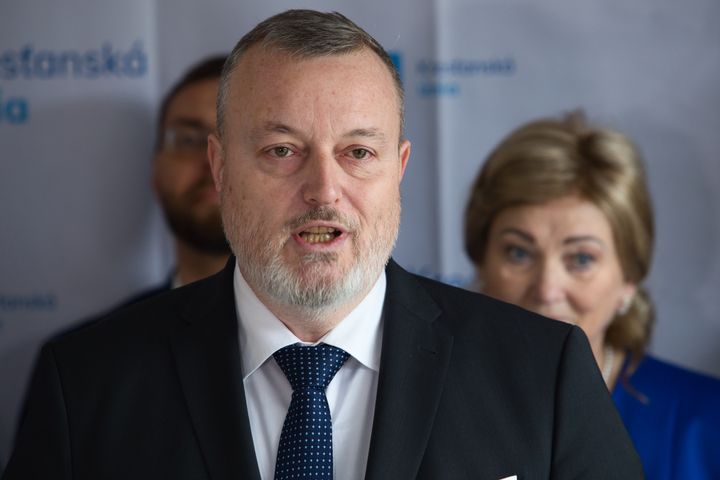Ushpiz: Israel Not Planning to Get Involved in Syria War

Bratislava, April 19 (TASR) – Israel doesn’t plan to get involved in the Syrian civil war, Political Director of the Israeli Foreign Affairs Ministry Alon Ushpiz has told TASR. In the interview he presented attitudes of the Israeli Government towards the war-torn Syria, Iran and the Israeli-Palestinian conflict.
While Israel isn’t going to intervene in the Syrian civil war, it’s a “moral obligation for all countries” to provide humanitarian assistance. So Israel has set up a field hospital in northern Israel, which has already treated more than 2,000 people who have crossed the border.
At the same time the Jewish State has publicly set “three red lines” for the other side. “First, we won’t tolerate attacks from Syrian territory against Israel. Second, we won’t tolerate transfers of significant weapon systems to the hands of terrorist organisations. Third, we won’t tolerate the Golan Heights to become a platform for Iran and Hezbollah,” said Ushpiz.
Israeli Prime Minister Benjamin Netanyahu a week ago announced that Israel carried out dozens air strikes against convoys of arms supplies for Hezbollah in Syria. Meanwhile, Hezbollah has been engaged in operations against such militant groups as Islamic State and Front an-Nusra, which is the Syrian branch of al-Qaeda. Ushpiz rejected a notion that Israel with this move actually helped these two terror groups, however.
“The fact that Hezbollah is fighting these two organisations doesn’t necessarily mean that it’s doing good in Syria. Hezbollah is part of the tragedy that’s going on in Syria from the humanitarian point of view,” said Ushpiz, pointing to Hezbollah’s terrorist struggle against Israel.
“It’s the biggest and most sophisticated terrorist organisation in the world. They have more than 100,000 missiles directed against Israel, and they’ve also tried to kill Israelis abroad, including in the EU. At the same time they continue operating against Israel, for example from the Golan Heights,” he said.
Micha’el Oren, former Israeli ambassador to the United States and current Knesset member for coalition party Kulanu, recently stated that if Israel had to choose between Islamic State and Assad, it should take IS. IS has trucks with machine guns, but Assad is being backed by Hezbollah, its rocket arsenal and the Iranian nuclear programme. However, Ushpiz doesn’t believe that Israel has to choose anything in Syria.
“It’s a civil war going on in a different country. They have to solve their problems on their own,” said Ushpiz. Nonetheless, it shouldn’t be forgotten that Assad’s regime is responsible for hundreds of thousands of dead Syrians and for Syria being a major source of migration coming to Europe, he said.
When it comes to Iran, Israel has “never spoken about a regime change … but only a change of policies with implications for Israel”, noted Ushpiz.
With Iran, there are at least four baskets of issues to be addressed: the nuclear military programme; terrorism; Iran serving as a destabilising element in Middle East, being involved almost in each flashpoint in the region; and crimes concerning human rights. “Even though the current regime of Hassan Rouhani has an image of smiling face, it’s executed more people than Mahmoud Ahmadinejad. There are hundreds of people,” stressed Ushpiz.
When asked whether Iran genuinely seeks to acquire a nuclear weapon, and whether it isn’t perhaps only a psychology plot, Ushpiz said that definitely not. These attempts have not only been registered by Israel, but also by the International Atomic Energy Agency (IAEA), he added.
A certain agitation around the Israeli-Palestinian conflict was recently stirred up by Bernie Sanders – the first Jew in American history to win a primary with a major party. He called on the United States to take up a more balanced approach, taking into accounts not only Israel’s needs, but also those of Palestinians. Nevertheless, Ushpiz doesn’t attach much importance to Sanders’s religion in this case: “American politicians, whatever their religion is, are primarily American patriots at the end of the day.” So, it’s necessary to understand Sanders’s statements in the context of American politics, rather than interpreting them in the light of his religion, believes Ushpiz.
Following the collapse of the US initiative two years ago, peace efforts in Middle East have stuck in an impasse. Nevertheless, according to Ushpiz, the Israeli Government is ready to continue in the process leading to a two-state solution at any time.
“Our prime minister has stated several times: all it takes is to pick up a phone and arrange talks. We’re ready to come to engage in talks bilaterally and directly without any further preconditions,” said Ushpiz.
“We’re ready to negotiate everything, including settlements,” said the political director of the Israeli ministry. At the same time it’s impossible to ignore the fact that the Palestinian violence is going on almost on a daily basis, though. Most importantly, there’s incitement to violence by official vehicles of the Palestinian authority, including newspapers, television, textbooks, and official statements, said Ushpiz.
“Abu Mazen [a nickname of Palestinian Authority chief Mahmoud Abbas – ed. note] has stated himself: ‘Every drop of blood in Jerusalem is a holy drop of blood’,” Ushpiz pointed out, adding that Palestinians have been naming streets after bomb attackers.
“Most importantly, we’ve asked [Abbas] several times to condemn terrorism and violence, but he has refused. If it happens once, it’s an accident, if it happens twice, it’s more than accident, and if this is happening repeatedly for months, and he hasn’t condemned terrorism and violence, in my opinion it has clear implications. His silence is supporting it,” added the political director of the Israeli Foreign Affairs Ministry.



